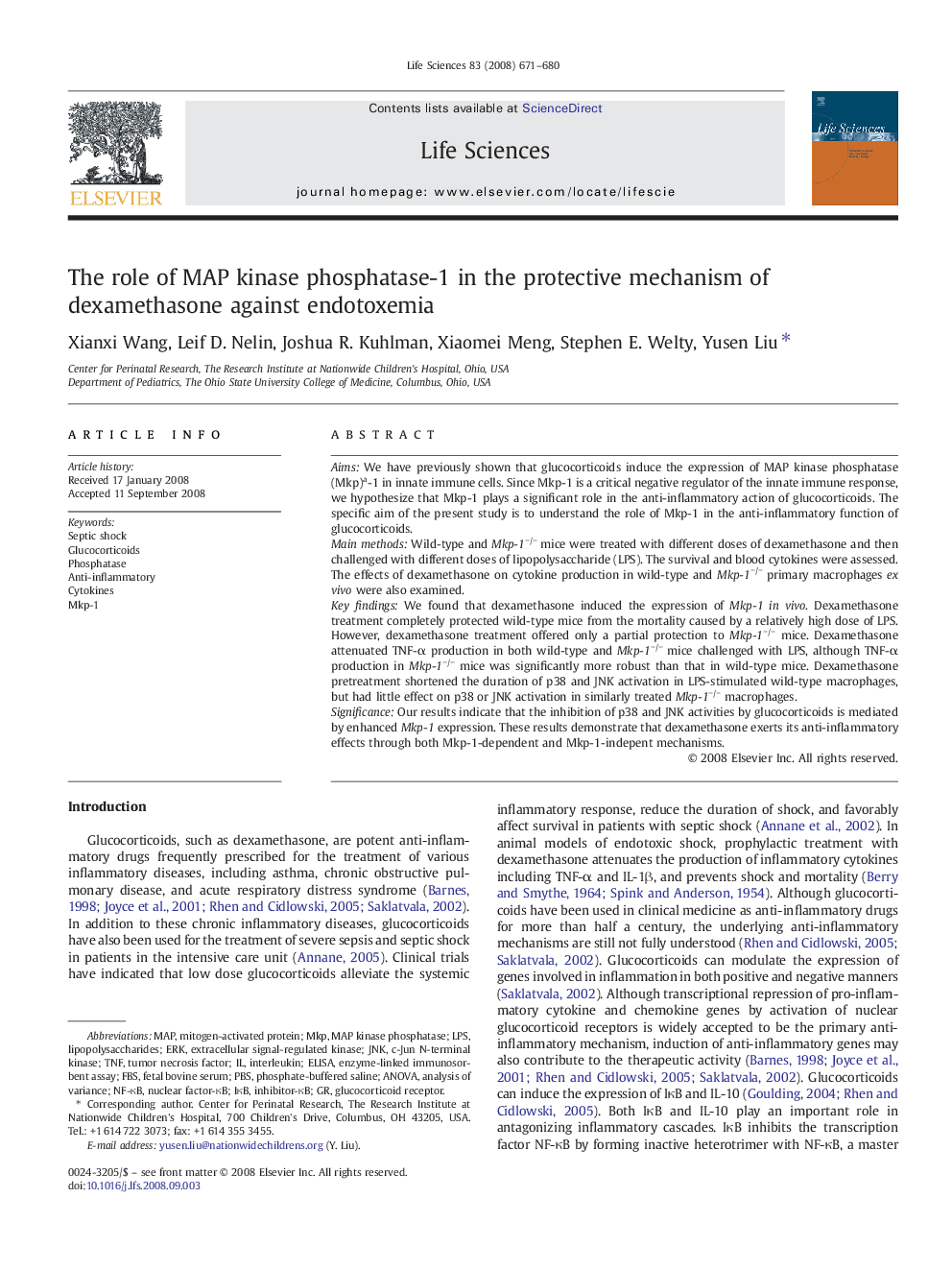| Article ID | Journal | Published Year | Pages | File Type |
|---|---|---|---|---|
| 2553506 | Life Sciences | 2008 | 10 Pages |
AimsWe have previously shown that glucocorticoids induce the expression of MAP kinase phosphatase (Mkp)a-1 in innate immune cells. Since Mkp-1 is a critical negative regulator of the innate immune response, we hypothesize that Mkp-1 plays a significant role in the anti-inflammatory action of glucocorticoids. The specific aim of the present study is to understand the role of Mkp-1 in the anti-inflammatory function of glucocorticoids.Main methodsWild-type and Mkp-1−/− mice were treated with different doses of dexamethasone and then challenged with different doses of lipopolysaccharide (LPS). The survival and blood cytokines were assessed. The effects of dexamethasone on cytokine production in wild-type and Mkp-1−/− primary macrophages ex vivo were also examined.Key findingsWe found that dexamethasone induced the expression of Mkp-1 in vivo. Dexamethasone treatment completely protected wild-type mice from the mortality caused by a relatively high dose of LPS. However, dexamethasone treatment offered only a partial protection to Mkp-1−/− mice. Dexamethasone attenuated TNF-α production in both wild-type and Mkp-1−/− mice challenged with LPS, although TNF-α production in Mkp-1−/− mice was significantly more robust than that in wild-type mice. Dexamethasone pretreatment shortened the duration of p38 and JNK activation in LPS-stimulated wild-type macrophages, but had little effect on p38 or JNK activation in similarly treated Mkp-1−/− macrophages.SignificanceOur results indicate that the inhibition of p38 and JNK activities by glucocorticoids is mediated by enhanced Mkp-1 expression. These results demonstrate that dexamethasone exerts its anti-inflammatory effects through both Mkp-1-dependent and Mkp-1-indepent mechanisms.
